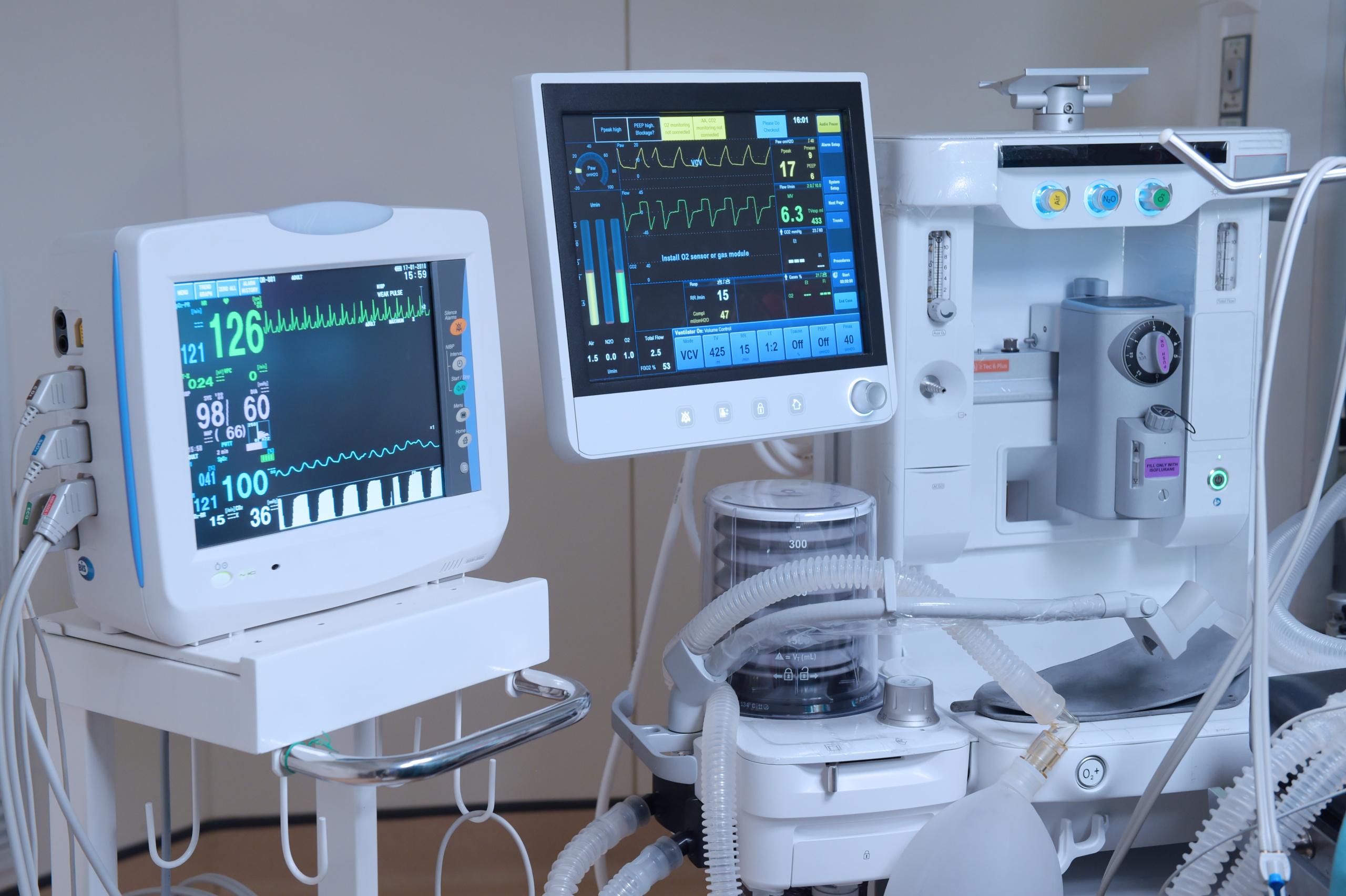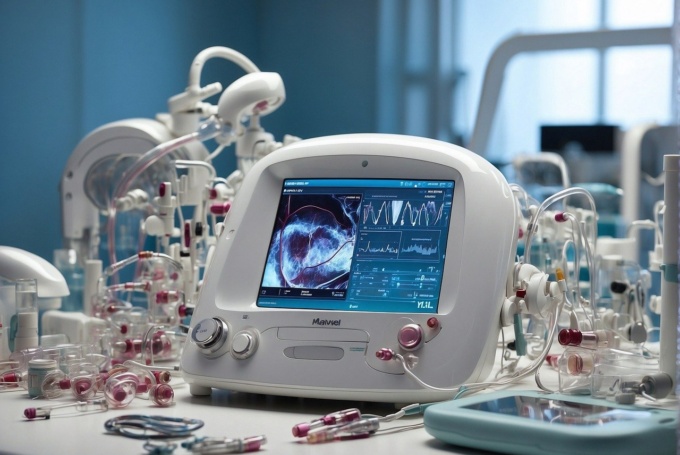This September, our MedTech Director Tanya Ridding is attending the LSI conference in Portugal, a fantastic opportunity to connect with some of the greatest innovators in European MedTech and watch the showcase of technologies that the event brings together. In light of the upcoming event, in this blog, Tanya walks you through some of the early-stage start-ups that VCs at 415 Capital, Sofinnova Partners, MIG Capital and SHS Capital believe are the ones to watch…
Medical Microinstruments, Inc. –
Founded in 2016, Medical Microinstruments, Inc. (MMI) is at the forefront of innovation in the field of robotic-assisted microsurgery. The company is renowned for developing the Symani Surgical System, a cutting-edge platform designed to enhance the precision and dexterity of surgeons performing intricate procedures.
What sets the Symani system apart is its integration of the world’s smallest wristed microinstruments, which enable unparalleled control in open surgery. These microinstruments are capable of movements on a sub-millimeter scale, allowing surgeons to perform complex reconstructive, plastic, and head and neck surgeries with remarkable accuracy. One of the key benefits of the Symani system is its ability to significantly reduce hand tremors, a common challenge in microsurgery, thereby improving patient outcomes and expanding the possibilities of surgical intervention.
Gradient Denervation Technologies –
Gradient Denervation Technologies, a pioneering French medical device company, has developed a breakthrough solution for the treatment of heart failure associated with pulmonary hypertension. The company’s cutting-edge device utilizes minimally invasive ultrasound technology to target and treat hyperactive nerves within the pulmonary arteries, addressing a critical need in cardiovascular care.
Pulmonary hypertension, characterized by high blood pressure in the arteries of the lungs, can lead to significant strain on the heart, eventually causing heart failure. Gradient Denervation Technologies’ innovative device offers a novel approach to managing this condition. By applying focused ultrasound energy to the overactive nerves in the pulmonary arteries, the device helps to reduce the excessive nerve activity that contributes to the elevated blood pressure. This not only alleviates the symptoms of pulmonary hypertension but also improves the overall heart function, offering new hope to patients who suffer from this challenging condition.
CorWave –
CorWave, a French medical technology company, is leading the charge in the development of next-generation implantable blood pumps designed to transform the treatment of advanced heart failure. The company’s innovative approach centers around its ground-breaking membrane technology, which sets its devices apart from traditional left ventricular assist devices (LVADs).
At the heart of CorWave’s innovation is its LVAD, which closely mimics the natural function of the human heart. Unlike conventional LVADs, which often produce a continuous flow of blood, CorWave’s device is capable of replicating the heart’s natural pulsatile rhythm. This breakthrough not only provides a more physiological blood flow but also significantly reduces the risk of mechanical damage to blood cells—a common complication associated with current LVADs.
CorWave’s membrane technology enables the device to deliver gentle, pulsating waves that support the heart’s function while minimizing the shear stress on blood cells. This leads to fewer complications such as hemolysis (the destruction of red blood cells), improving patient safety and enhancing the quality of life for those living with advanced heart failure.
Ganymed Robotics –
Founded in 2018, Ganymed Robotics is a forward-thinking French company that is pioneering a transformative approach to surgical robotics. By collaborating closely with leading international surgeons, Ganymed Robotics is developing an innovative platform designed to assist surgeons in performing knee replacement surgeries with unprecedented precision.
What sets Ganymed Robotics apart is its integration of advanced artificial intelligence (AI) and computer vision technologies. The platform is designed to perceive and interpret critical information from the operating room (OR) in real-time, enabling it to assist surgeons with the accurate placement of implants. This advanced level of perception ensures that implants are positioned with optimal alignment, which is crucial for the success and longevity of knee replacements.
The AI-driven robotic platform developed by Ganymed Robotics not only enhances surgical precision but also supports surgeons in delivering personalized care tailored to the unique anatomy of each patient. By improving the accuracy of implant placement, the platform aims to reduce the risk of complications, accelerate recovery times, and ultimately improve patient outcomes.
GLEAMER –
GLEAMER, a visionary French company, is at the forefront of revolutionizing medical imaging by developing a comprehensive AI co-pilot designed to pave the way for precision medicine. Committed to enhancing the capabilities of healthcare professionals, GLEAMER is pioneering the integration of artificial intelligence into radiology to improve diagnostic accuracy and patient care.
The core of GLEAMER’s innovation lies in its advanced AI tools, specifically crafted to assist radiologists in the interpretation of medical images. These tools are particularly adept at identifying bone trauma at the point of care, providing critical support in emergency settings where rapid and accurate diagnosis is essential. By augmenting the radiologist’s expertise with AI-driven insights, GLEAMER’s technology helps to reduce diagnostic errors, ensuring that patients receive timely and accurate treatment.
GLEAMER’s AI co-pilot acts as an indispensable partner in the diagnostic process, offering precise image analysis that enhances the detection of abnormalities, streamlines workflows, and supports the move towards more personalized medicine. As the company continues to develop and refine its AI solutions, it is setting new standards in the field of medical imaging, ultimately improving outcomes for patients around the world.
Salvia BioElectronics –
A pioneering company based in the Netherlands is on a mission to improve the quality of life for individuals suffering from migraines through cutting-edge neuromodulation therapies. With a deep commitment to addressing the challenges of chronic migraines, the company has developed a ground-breaking implant designed to significantly reduce the frequency and intensity of migraine attacks.
The therapy leverages advanced neuromodulation techniques, which involve stimulating specific nerves associated with migraine pain. The implant delivers precise electrical pulses to targeted nerves, effectively interrupting the pathways that trigger migraine episodes. This innovative approach not only offers relief from debilitating migraine symptoms but also provides a long-term solution that can drastically reduce the reliance on medication.
By focusing on the root causes of migraines, rather than just alleviating symptoms, this neuromodulation therapy represents a significant advancement in migraine treatment. Patients who have struggled with chronic migraines now have access to a therapy that can potentially transform their daily lives, enabling them to enjoy a higher quality of life with fewer disruptions.
ARTIDIS –
ARTIDIS, a Swiss clinical-stage company, is breaking new ground in the fight against cancer by developing the world’s first nanotechnology platform designed for rapid diagnostics and treatment optimization. With a commitment to transforming cancer care, ARTIDIS is creating innovative imaging tools that combine cutting-edge nanotechnology with a sophisticated digital platform to enhance the precision and speed of cancer diagnostics.
The core of ARTIDIS’s innovation lies in its ability to analyze tissue at the nanoscale, providing detailed insights into the physical characteristics and microenvironment of cancerous cells. This advanced analysis is integrated with a digital platform that interprets the data, helping clinicians to tailor treatment strategies to the specific needs of each patient. By measuring key parameters such as tissue stiffness and cellular structure, ARTIDIS’s platform can quickly and accurately determine the aggressiveness of a tumor, enabling earlier and more personalized intervention.
What sets ARTIDIS apart is its potential to significantly reduce the time required for diagnosis and to inform more effective treatment plans, ultimately improving patient outcomes. The combination of nanotechnology and digital analytics represents a major leap forward in the ability to diagnose cancer with unprecedented accuracy and speed.
CoreMedic –
Founded in 2012 as a spin-out in Bern, Switzerland, CoreMedic is at the forefront of developing groundbreaking treatment options for mitral valve regurgitation (MR), a condition that affects millions of people worldwide. CoreMedic’s mission is to provide a less invasive, more effective solution for patients suffering from MR through the development of an advanced implantable device.
The company’s innovative device is designed to replace the damaged or ruptured mitral valve through a minimally invasive procedure. This approach offers significant advantages over traditional open-heart surgery, including reduced recovery times, lower risk of complications, and a faster return to normal activities for patients. By targeting the root cause of mitral valve regurgitation, CoreMedic’s technology helps to restore proper heart function, improving both the quality of life and long-term outcomes for patients.
CoreMedic’s implantable device is engineered to provide a durable and reliable solution, addressing the critical needs of MR patients who require effective treatment options that are less invasive and more patient-friendly. As a leader in the field of cardiovascular innovation, CoreMedic continues to push the boundaries of what’s possible in the treatment of heart valve diseases, offering hope to those affected by this challenging condition.
Vitestro –
Vitestro is on a mission to revolutionize phlebotomy by becoming the first medical company to introduce autonomous blood drawing technology to European hospitals. Combining advanced robotics and artificial intelligence (AI), Vitestro is developing an innovative device that aims to perform blood draws more safely, efficiently, and with greater precision than traditional methods.
The company’s autonomous blood drawing device is designed to streamline the process of blood collection, reducing the burden on healthcare professionals and minimizing the risk of human error. By leveraging AI to precisely identify veins and robotics to perform the draw, the device ensures a consistent and accurate procedure, enhancing patient comfort and reducing the likelihood of complications.
Vitestro’s technology is set to transform the way blood samples are collected, offering significant benefits such as reducing wait times, improving the efficiency of laboratory workflows, and lowering healthcare costs. For hospitals facing staffing shortages and increasing patient demands, this innovation represents a critical advancement that can improve the overall quality of care.
Saphenus Medical Technology –
Founded in Austria in 2016, Saphenus Medical Technology is at the cutting edge of prosthetic innovation, dedicated to transforming the lives of individuals with lower limb amputations. The company has spent years researching and developing the world’s first sentient prosthesis, in collaboration with leading scientists, to offer a groundbreaking solution that redefines the capabilities of prosthetic devices.
At the heart of Saphenus’s innovation is the Suralis Sensory Feedback System, a pioneering technology that provides users of lower limb prosthetics with a true sensation of foot contact. This advanced system is designed to significantly enhance the user’s balance and gait by restoring a natural sense of connection between the prosthetic limb and the ground. By simulating the sensory feedback that a biological limb would provide, the Suralis system enables wearers to walk with greater confidence, stability, and comfort.
This sentient prosthesis represents a major leap forward in prosthetic technology, offering users an experience that closely mimics the sensation of having a natural limb. For individuals who rely on lower limb prosthetics, Saphenus’s innovative approach not only improves physical functionality but also enhances overall quality of life by enabling more natural and intuitive movement.
Bluedrop Medical –
Bluedrop Medical was founded in 2015 by Chris Murphy and Simon Kiersey and is headquartered in Galway, Ireland. The company exists for one simple purpose – To help end unnecessary diabetic amputations. Through extensive in-clinic primary research, former Medtronic R&D Engineers, Chris and Simon learned of the tremendous burden caused by diabetic foot ulcers and resultant amputations. They have a device to monitor foot health and prevent diabetic foot ulcers (DFU). The scale-like device enables early detection, which prevents severe disease progression and risk.
Are you a medical device company looking for talent? Or maybe you’d like to learn more about our recruitment services? Submit your vacancy here.
Or, head over to my specialist executive search page to learn how our medical device experts can support your growth.





